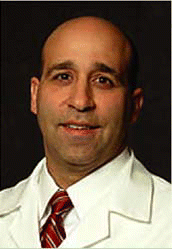Dr. Shohet emphasizes that the first step in treating tinnitus is identifying the origin of the tinnitus and treating any medically or surgically treatable cause. After that, patients need to address lifestyle issues that affect their tinnitus. I call them the avoidance factors: avoid stress, fatigue, caffeine, and other loud noises, he said. And for anyone who has a hearing loss, we get them into a hearing instrument. If all those things fail, we typically will go to our Neuromonics [approach], and in our practice that is a pretty significant proportion [of patients]. Because of the fluctuating nature and intensity of their tinnitus, patients with Ménière’s disease and cochlear hydrops are not ordinarily good candidates for this treatment, although some inpatients in a nonacute phase of their symptomology have experienced some success. Other patients who would be considered poor candidates for the treatment are those who would have trouble self-administering it.
Any new treatment for tinnitus deserves some healthy skepticism, said Dr. Shohet. There have been a lot of things that have come up in the past that have been touted as the next greatest thing for tinnitus and in the end it hasn’t turned out to be much better than a placebo, he said. It is possible that with further studies we may find this instrument’s place in our armamentarium, but so far our early experience has been favorable.
Jack J. Wazen, MD, Director of Research at the Silverstein Institute in Sarasota, FL, helped lead the planning phase for the US trial, which is slated to enroll approximately 100 patients. Dr. Wazen, the first research fellow at the Silverstein Institute and now a partner in that practice, left Sarasota in 1983 and worked as a researcher, professor, and practitioner with Columbia University and the Columbia-Presbyterian Medical Center in New York. Because of my academic background and interest in research, Neuromonics approached me and asked if I wanted to participate in coordinating a national research protocol, he said. Approval of that protocol is imminent.
Because tinnitus is not one disorder, different people may react differently to various treatments. One of the fallacies is that there is going to be a cure for tinnitus, said Dr. Wazen. There may be a cure for a certain type of tinnitus that may not work for others. The advantage of the Neuromonics device is that it works on what all types of tinnitus have in common: the brain.

Leave a Reply